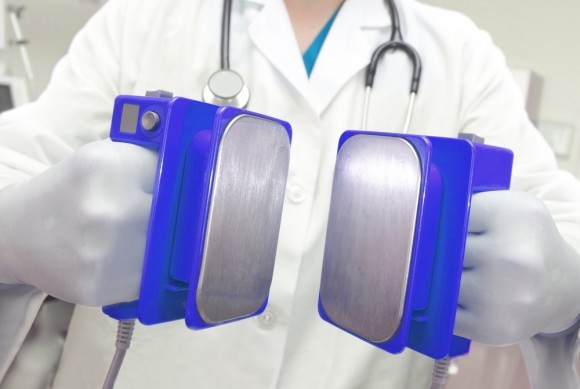
How do you measure if a startup is doing something truly exceptional? What are the metrics that you are going to use? I am not talking about direct economic value per say, but the human aspect, of being a startup that helps to solve a real-world problem and adds real value to the community. Would saving lives count?
On our recent trip to the Dublin Web Summit while eating pizza, we met Andraž Ogorevc, the founder and CEO of iHELP. As is common courtesy during such events, we had to ask: “So what do you do?” and as is also common – we did not expect to hear anything too mind blowing.
But in fact, it was so impressive that we decided to lift our normal boundary of Northern Europe/Baltic coverage to write about iHelp, which is actually out of Slovenia. Mostly because after hearing their story, we also want to help.
Ogorevc, a serial entrepreneur with two previous exits, told us a very passionate and heartfelt story about how he has suffered two cardiac arrests and has miraculously survived. His twin brother, he told us, with a sudden but quickly discarded tear in his eye, has also suffered an anaphylactic shock and they had to wait 42 minutes for the ambulance to arrive. People do not usually make it if help does not arrive quickly enough, miraculously his brother did.
At that point, Ogorevc, decided that he simply needs to do something about it. After all, in the common age of interactivity there are other people and resources that can help.
The target time for an ambulance to arrive in most countries is 8 minutes. After a heart attack the brain can die in 4 minutes. Don’t know about you, but I definitely see a disconnect here. If you can find somebody who can perform a CPR, the chances for survival are almost double and there are a lot of people around us that can help find that person.
This is what iHELP does, it is an emergency button app, but unlike most others it does not simply send a text message to your friends and relatives. It also sends the distress signal to other users, is connected to several rescuer networks, displays the distance and direction to the closest defibrillator, uses social networks and even the employees of iHELP try to respond immediately.
Does it work? Since their beta launch earlier this year, they have gathered 13 600 users in Slovenia who have installed the app. However the most important, powerful and perhaps amazing number is “two”. That is two confirmed saved lives thanks to the use of the app. Two times when it was activated and either the users, the community or people around them were able to help faster than the ambulance arrived and thus helped save lives.
After spending days talking about social apps, gaming companies, video editing apps and others, this was the most powerful message that I have heard in a while. They saved lives. At that point it did not matter what their business model was, how much money they wanted to raise or made. It did not matter how many users they had. They saved two lives, and I wanted to help.
Oh and if you are one of those that only cares about the monetary aspect of things, they do have revenue already and are building the app with scalability in mind. This includes the larger vision of creating an iHELP Emergency Platform complete with API’s and rapid expansion to other countries.
They told us that with iHELP, the community is activated in less than 20 seconds, compared to a normal emergency phone call that can take up to 2 minutes. Help can theoretically arrive in less than 2 minutes compared to the average time of 10 minutes.
To launch in other countries, they need to build rescuer networks and connections with non-profit organizations that have data on locations of defibrillators, hospitals, police, fire stations and help points. So if you want to help them build this network, feel free to get in touch with them directly or with us.
Overall, we need more startups that would be solving real problems and adding real value. That is not to say that the “Instagrams” of the world are completely useless, but it would be refreshing to see more startups trying to do what iHELP does.
Top Image Courtesy of Shutterstock // Defibrillator




